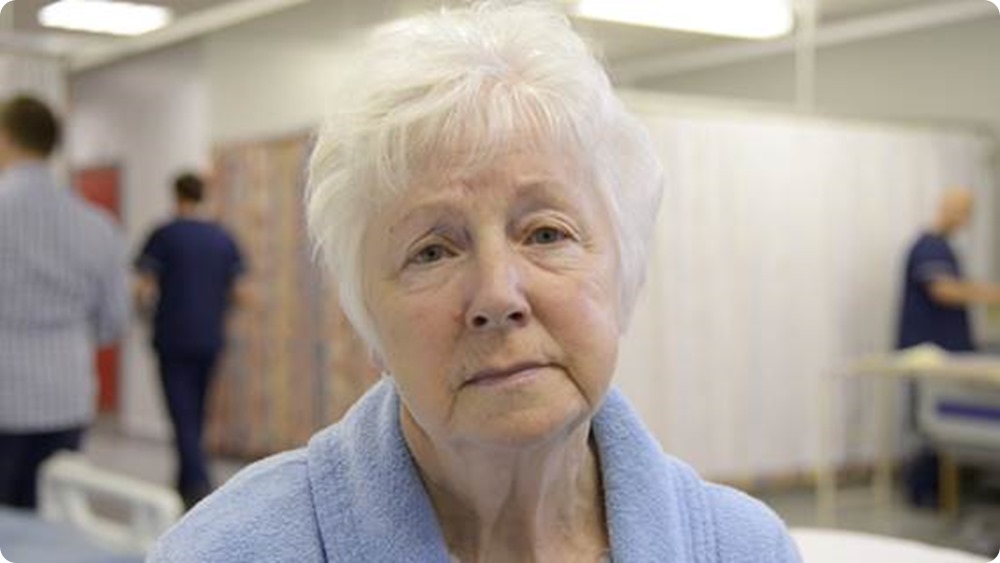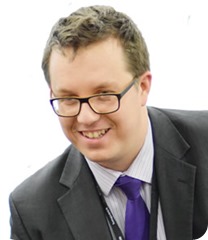What are Massive Open Online Courses (MOOCs)?
MOOCs are short, free courses run by major learning providers to share their knowledge of a particular academic topic or to help students develop a specific skill.
They are ‘open’ which means that they accept anyone, but also in terms of their philosophy.
MOOCs have been run on all sorts of different topics, from Equine Nutrition to the Science of Happiness and to Introduction to Solar Systems Astronomy.
They allow people who might not have access to Higher Education, because of cost or location for example, to have access.

How far to date have MOOCs been used for healthcare training?
In a variety of ways but mostly led by Universities and foundations. For example, courses have been run on influenza, Ebola, childhood, research and evidence, anatomy, genomics, drugs and addition.
The diversity is amazing; however these courses are open to everyone, which really adds an extra dimension. Rather than nurses sitting in a room talking to each other in isolation, they can study alongside patients, clients, service users and member of the general public which really enriches their experience.
For example, we recently ran a MOOC on dementia which had over 3,000 students who were from all across the world: some were nurses and from health professions but a large number of them were not. Their voices were incredibly important and the dialogue challenged the health and social care professionals to think differently.
Bridging the Dementia Divide: Supporting People Living with Dementia
What are the main advantages of MOOCs over traditional courses?
They are free, although in some MOOCs if you want to you can pay a small fee and get a certificate.
They also provide a platform for social learning at scale; some of the larger courses have tens of thousands of students – the ability to ask questions and engage in debate with such a large number of people is amazing.
Courses are often run on very interesting and exciting topics, and the great thing is that anyone can study them, even if you don’t have any previous study.
In what ways are MOOCs limited?
Well the challenge of having tens of thousands of students often means that as educators we don’t get chance to speak to everyone.
A program team of five or ten realistically wouldn’t be able to have individual conversations with each student; but we try, we answer all emails we get and engage in the discussion boards as much as possible.
On the MOOC I ran, every week we held a live streaming session so that students could ask questions and get direct answers; being accessible is incredibly important.
MOOCs also aren’t yet equivalent to University courses. Although they share many of the same features, currently university credit is only offered for a few MOOCs in special situations.
I believe this will be the largest change in MOOCs moving forwards; that Universities will start to accredit courses run as MOOCs allowing students to combine them to get a degree.
Why is retention a significant problem with MOOCs and how do you try to keep people engaged?
I’d rather see this as student success; people enter courses with the best of intentions. They want to learn something new or enhance their career prospects but often life gets in the way.
A course that is free doesn’t come up high on the agenda when people have other commitments and that’s fine. Lots of people sign up for courses, access the content and then don’t complete the assessment: again that’s fine in MOOCs.
Some courses just don’t inspire students and they drop out. We can counteract this by providing engaging, stimulating content that meets their needs: a mixture of videos, text and activities to get them involved in social learning.
We applied this method in our MOOC and over 35% of our students completed the MOOC on dementia; typically only 5-8% of students complete MOOCs.
What quality assurance processes do your MOOCs undergo?
Quality assurance is one of the major problems with MOOCs – anyone can design and run a MOOC with very little regulatory framework.
The Quality Assurance Agency, who currently deal with issues of quality in Higher Education, aren’t interested in MOOCs at the moment.
We took the conscious step, a hard one really, in wanting to make sure our MOOCs go through a system of assurance. By doing so, the courses are the best possible they can be.
Do MOOCs currently carry any credit with regards to university courses?
MOOCs started as something to challenge the current landscape of education – and they have.
I am aware of a couple of instances where MOOCs have been tied together to form some University credit, but this is currently very rare. Students are still able to get certificates for their participation.
Some of these are free, some you have to pay for. But people do put these courses on their CVs to show potential employers that they’ve done some study on a relevant topic. I think that we’ll see more accreditation of MOOCs over the coming years.
How important do you think MOOCs will be in the future of healthcare training?
MOOCs will be one part of a number of platforms to support healthcare education. There will always be a place for face to face teaching, especially if for example a nurse is training to become a health visitor which is a specific course and confers specialist registration.
However, MOOCs can provide a way for people to extend their skills. For example, the health visitor could take a MOOC on child nutrition and update their skills in that area.

What healthcare issues do you think MOOCs could be used to tackle going forwards?
A very wide range; I’d love to see MOOCs tackling global health and social issues, so for starters a MOOC on diabetes and obesity would be interesting. There’s lots of debate going on about the NHS and how it can continue to be sustainable – a MOOC could be used to support that challenge.
One MOOC recently crowd sourced a constitution for the UK; could we crowd source the answers to a stagnating and stressed economy, for example? Or a financially challenged and in-debt NHS?
Where can readers find more information?
http://www.derby.ac.uk/online/
About David Robertshaw
David is a UK Nursing and Midwifery Council Registered Nurse with a background in adult acute care. He is program leader for three programs at the University of Derby: BSc (Hons) Nursing Studies (top up), MSc Integrative Health and Social Care, and a University Advanced Diploma in Dementia Care. All of these programs are taught fully online.
During 2015, David was the first academic at the University of Derby to run a MOOC entitled ‘Bridging the Dementia Divide’ which attracted over 3,000 learners and saw one of the highest retention rates ever recorded: over 35%.
Recently speaking in New York at Learning with MOOCs II, David also presented at the Palace of Westminster regarding the potential of MOOCs to support training for healthcare professionals.
During 2016, David will speak at the Higher Education Academy’s Health and Social Care conference and he has been invited to speak at a local TED conference.